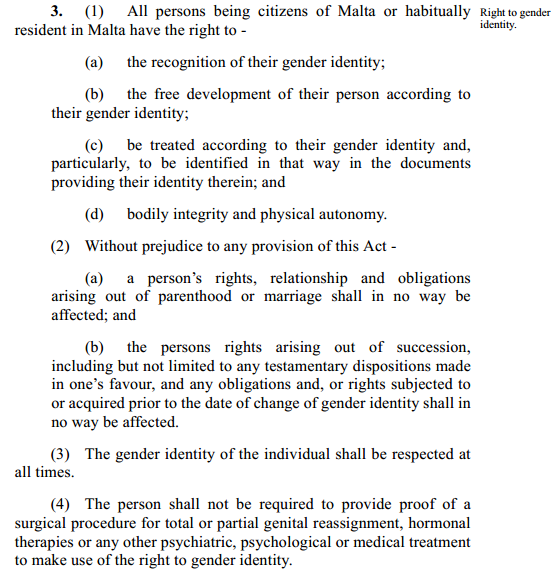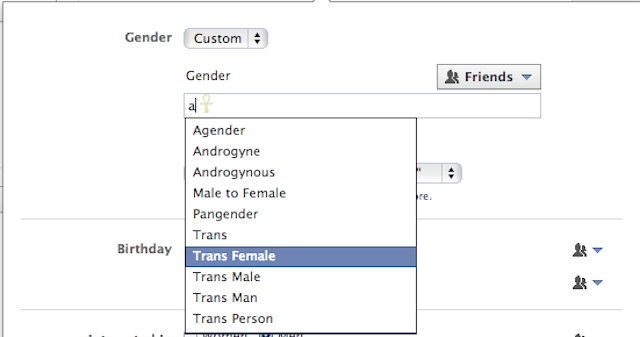These Eleven Countries are Way Ahead of the US on Trans Issues
By:

The list of countries with more trans-friendly laws than the United States grew by one this week.
Ireland made history Tuesday as the country's groundbreaking Gender Recognition Act of 2015 took effect after its passage by the Irish Parliament in July. The new law allows transgender adults age 18 and older to self-declare their gender for all official documents, including updating driver's licenses, birth certificates and passports. Medical or psychiatric testimony will not be required, a step hailed by some in trans, intersex, and non-binary community who find such treatment unnecessary, unsupportive, or unhelpful.
With this change, Ireland joins four other countries -- Argentina, Malta, Colombia and Denmark -- which also allow the trans community to self-determine gender without undergoing medical treatment or sterilization.
Despite Ireland's update this week, Malta still remains the most notable among these five countries, as the picturesque island nation in the Mediterranean passed a historic Gender Identity, Gender Expression, and Sex Characteristics Bill earlier this year to surprisingly little international fanfare. Providing perhaps the most expansive protections for trans and intersex people in the world, Malta's new policy not only allows Maltese citizens to update their gender identity on their official documents, like passports, without having to undergo medical treatment; it also includes an “X” (third gender or decline-to-state) marker option for passport applicants, something that many countries with trans-inclusive legislation still lack.
Also significant, the bill of rights explicitly prohibits requests for medical information about gender change applicants, and it caps the process for updating documents at 30 days. (It can take years to change official documents in other countries. Denmark, for instance, requires a six month "reflection period" before making any alterations.) With the goal of being "quick, transparent and accessible," the Maltese law sets a new bar gender identity legislation across Europe. The Maltese don't just have the Mediterranean Sea to enjoy; they also have an unprecedented gender identity bill of rights.
Maltese Minister for Civil Liberties Helena Dalli noted that “all human beings are born free and equality in dignity and rights” and called the measures a step forward for extending that promise to everyone.
Among many groundbreaking protections, it includes the right to “the recognition of their gender identity” for all citizens and the right to their gender identity being “respected at all times.” The law also makes it illegal for doctors to force a gender surgically on intersex infants until the intersex child “can provide informed consent.” Wow.

Intersex and trans advocates have been fighting for analogous protections in the US for decades. If I move to Malta, you’ll know why.
Other Countries Have Similar Options
Similar passport adjustments have been made in at least nine other countries, although none have legislation nearly as sweeping as Malta’s gender identity law.
Australia: As of Sept. 2011, intersex individuals may choose to list their gender on their passports as “X” rather than male or female. While the “X” designation is not open to transgender or non-binary Aussies, trans residents are able to switch their gender marker designation from M to F or vice-versa with the support of a doctor’s note.
Bangladesh: The Southeast Asian nation has offered an “other” gender category on passport applications since 2011, partially in recognition of hijra communities - a term used throughout South Asia to refer to transgender and intersex people, among others, who sometimes identify as third gender rather than male or female.
New Zealand: New Zealand followed the lead of Australia in 2012, and announced that non-binary and transgender people could change the gender marker on their passports via a simple declaration. (No need for a doctor’s certification or other gatekeepers.) Options for passports include male, female, and X (indeterminate/unspecified).
Germany: In 2013, Germany lawmakers amended birth certificates to give parents the option to leave the gender blank for intersex infants. This step allows intersex children to decide their gender identity when they reach adulthood, rather than legally or surgically forcing a gender identity on them without their consent. The interior ministry simultaneously announced that German passports would similarly allow a third designation, X, for intersex citizens. Transgender Germans are also able to update their passports to reflect their gender identity.
India: While India has acknowledged a third gender to some degree since 2005, the Indian Supreme Court officially recognized a third gender category for passports in April 2014. India now allows transgender, intersex, and hijra individuals to obtain documents that match their gender identity, whether male, female, or third gender.
Nepal: The Nepalese passport authority announced just last month that a third gender category will be available for the nation’s passports. This long awaited move follows a 2007 Nepalese Supreme Court decision that instructed the government to alter legislation to include a third gender option.
Colombia: As of June 2015, Colombians can change their name and gender on official documents, such as passports, without having to endure medical or psychological examinations -- or undergoing forced sterilization, like some European countries.
Argentina: The South American country established that "all persons have a right to the recognition of their gender identity" in 2012. In addition to allowing transgender people to easily change their gender on official documents, including passports, without invasive medical intervention, they also guarantee access to medical transition treatment (if desired) for all citizens.
Denmark: Denmark has allowed transgender people to self-determine their official gender since late 2014, including the ability to list an "X" in place of the traditional "M" and "F" gender markers on passports, a step celebrated by non-binary Danes despite the six-month waiting period and minimum age restrictions that the law imposes.
What about the US?
Facebook was able to acknowledge the need for alternate gender choices, giving users 50 new gender options in 2014. More than a year-and-a-half later, non-binary, trans, and intersex Americans are still waiting for the US government to recognize the complexity of gender identity. We will likely continue to wait.

As I book my own appointment to change the gender on my passport for an upcoming trip, I’m faced with an array of hurdles. Despite having a driver’s license with an “M,” I’m waiting for a doctor’s note to certify that I’ve “undergone appropriate clinical treatment for gender transition” - whatever that means. I can’t renew my existing passport via the standard process and must instead go in person with my letter to prove my new gender.
And if my doctor decided that my identity was “in process” rather than “complete”? (How exactly does one “complete” gender?) I would only receive a two-year “limited-validity” passport that would revert to my original gender without another letter from my physician. I also need to update my legal gender at other federal agencies, such as Social Security, in the right order to avoid no-match problems in their databases. Each has their own criteria and process, creating a frustrating and time-consuming labyrinth of paperwork for any transperson.
This process is light-years ahead of where the US was prior to 2010, when documentation of transition surgery -- which some individuals either don’t want or can’t afford -- was required to change your passport.
Nevermind non-binary people that may choose not to identify as male or female; there’s no option for them.
We also complicate the lives of non-citizens from more progressive countries. As Morgan Carpenter of Australia says, “As an adult with an X passport I can tell you that actually using the passport is fraught with difficulty. I can’t fly to the US with that passport, indeed I can’t even book a meeting about that with their consulate.”
In 2014, a petition was started asking the White House to legally recognize non-binary genders. They received a Dear John style response; it summarily rejected the request in favor of the continued patchwork of laws and executive memos, focusing on “the affected federal and state agencies” rights to consider changes on a “case-by-case basis” -- rather than the lived experience of actual Americans affected by the lack of universal standards and recognition.
Despite the cultural fascination with transgender Americans in 2015, from "I Am Cait" to "Transparent" to "Orange Is The New Black," trans individuals are still waiting for the United States to catchup with some of our more progressive fellow countries. Should keep an eye on a future move to Malta? We'll see.
